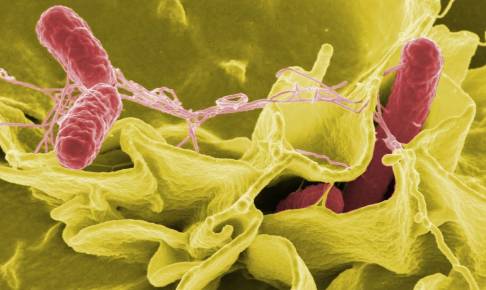Human health risks linked to contaminated pet treats, study says
A group of researchers from the University of Liverpool, in collaboration with the United Kingdom Health Security Agency, has published a study which adds to evidence that dried meat dog treats can be contaminated with Salmonella, hence be a risk for dog owners. They also found that some samples contained similar types of Salmonella identified in human patients, highlighting the importance of following hygiene practices to dog owners, pet food retailers, and veterinary professionals.
Air or freeze-dried and dehydrated treats do not undergo cooking or heat treatment as part of production, nevertheless, the process used must have been proven in sampling tests to kill Salmonella. The study focused on dried treats sold in the UK. The samples, eighty-four in total, were collected in September-October 2021 from local pet shops and online retailers and includes products made of buffalo/bison, chicken, beef, lamb, pork, duck, rabbit, and camel meat.
Country of origin was unknown for the majority of samples. Related to this, the researchers highlighted the importance of clear labeling for traceability and said that a lack of information on origin poses a risk of importing Salmonella serotypes not commonly reported in the UK.
UK government guidelines state that dog treats must be packed in unused packaging. However, the samples that have been found contaminated with Salmonella were sold as loose items that could be picked up by hand and purchased in paper bags.
Salmonella was detected in 13 treats, all collected from the same independent pet shop on two separate visits. The authors explained that this could represent a local problem or a result of contamination (at the supplier’s or within the supply chain), and added that, without further environmental sampling, it was not possible to identify where within the production chain contamination occurred.
Five Salmonella serotypes were identified: Salmonella Anatum, Derby, Dublin, Infantis, and monophasic Salmonella Typhimurium. The most frequently isolated serotype was Salmonella Derby. An antimicrobial-resistant phenotype was identified in 39% of isolates.
All serotypes identified are known to cause human infection. Salmonella Derby and monophasic Salmonella Typhimurium strains were genetically similar to patient samples, but there was no epidemiological information to confirm a connection.
The risk of transmission to humans has been connected to a lack of appropriate hygiene measures, both during the handling of dog treats and contact with the animals (that may shed Salmonella in their feces).
Source:
https://bvajournals.onlinelibrary.wiley.com/doi/full/10.1002/vetr.2642






















